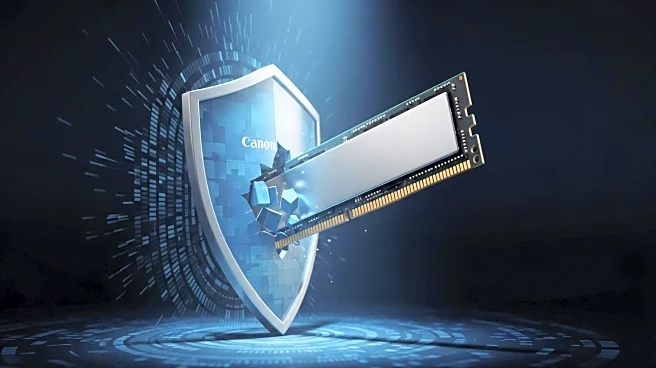What is the story about?
What's Happening?
Researchers have unveiled a new hardware attack named Battering RAM, capable of bypassing security technologies in Intel and AMD systems. The attack requires physical access to the targeted device and involves using a $50 interposer device to redirect protected memory addresses. This method can compromise Intel SGX and AMD SEV-SNP technologies, which are designed to protect sensitive data in cloud environments. Despite the potential threat, Intel and AMD have stated that such attacks are outside the scope of their threat models, as they require physical access.
Why It's Important?
The Battering RAM attack highlights vulnerabilities in current security technologies used by major cloud providers, raising concerns about data protection against insider threats and supply chain attacks. While the attack requires physical access, the implications for data centers and cloud services are significant, as rogue employees or compromised supply chains could exploit these vulnerabilities. The disclosure underscores the need for enhanced physical security measures and potentially new technological solutions to safeguard sensitive data.
Beyond the Headlines
The attack raises ethical and legal questions about the responsibility of chip manufacturers to address vulnerabilities that require physical access. It also prompts discussions on the balance between technological advancement and security, as well as the potential need for regulatory oversight in the semiconductor industry. The long-term impact may include increased investment in security research and development to address such vulnerabilities.














